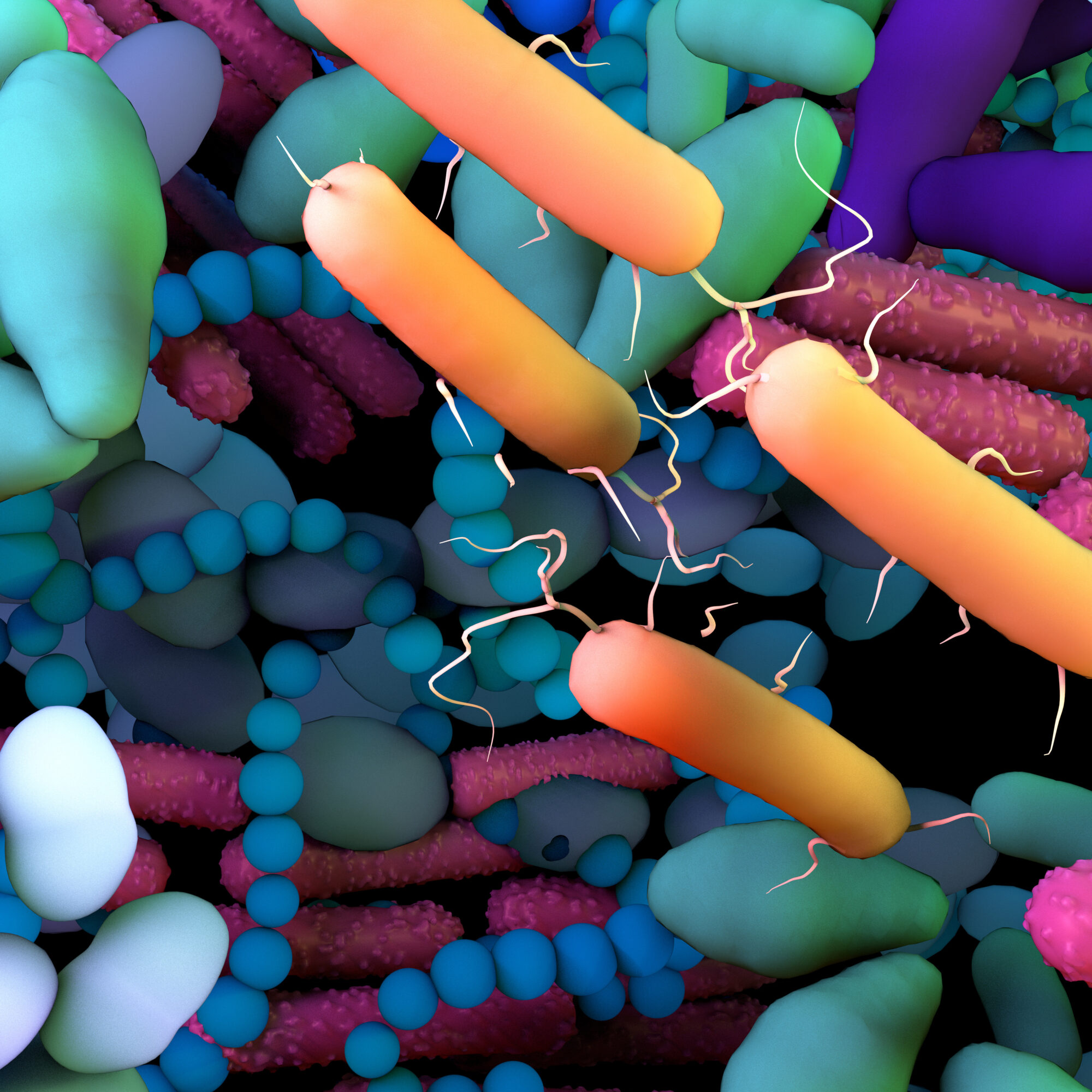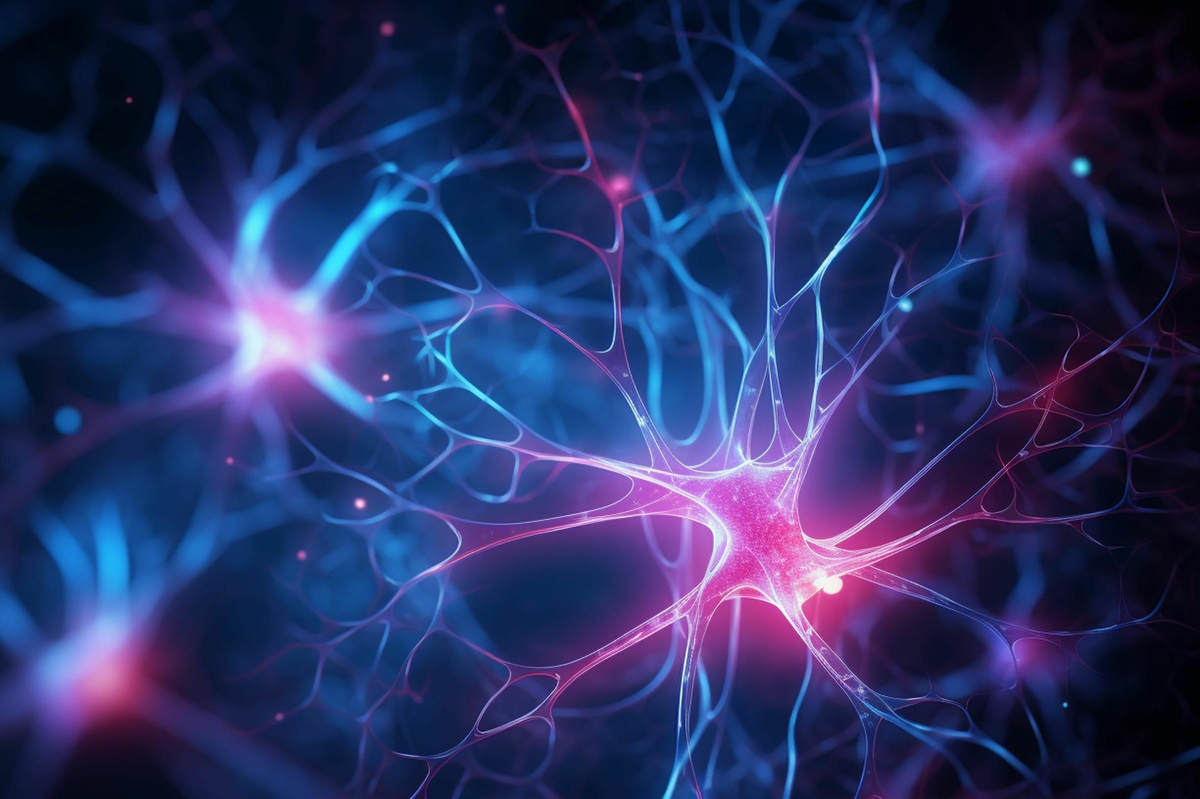Gut microbiota influences neurotransmitter synthesis
The gut microbiota communicates with the brain through neural pathways, influencing brain activity, emotions, and cognitive functions.
Neurotransmitters are chemical messengers that carry signals from the nervous system to the rest of the body, like glutamate, GABA, serotonin, and dopamine that play an important role in the modulation of behaviour, cognition, sleep, mood, attention, working memory, and learning. The gut microbiota participates in the synthesis of neurotransmitters.
Studies suggest that alterations in the gut microbiome can lead to disturbances in neurotransmitter synthesis, which contribute to neurological disorders such as Alzheimer’s disease, Parkinson’s disease, autism spectrum disorder, and anxiety.
Several bacterial present in the gut such as E. coli, Bacteroides, Eubacterium, and Bifidobacterium produce certain Alzheimer’s disease-related neurotransmitters, such as Acetylcholine, GABA, and glutamate, demonstrating a potential link between gut dysbiosis and neurotransmitter dysregulation in Alzheimer’s pathogenesis.
Research in this field remains ongoing. Exploring the regulation of neurotransmitters synthesized in the gut, that play a pivotal role in cognitive functions, working memory, and learning, could profoundly impact the development of Alzheimer’s disease.
Gut microbiota affects brain function by modulating the vagus nerve’s activity
The vagus nerve establishes a connection between the brain and the gastrointestinal tract and sends information about the state of organs to the brain via afferent sensory fibres. Gut bacteria can modulate the sensory fibres of the vagus nerve that are pivotal in mood, brain cognition and anxiety management, through gut hormones and gut metabolites.
Many gut microbiotes have cognition modulatory effects dependent on the vagus nerve activity. For example, Lactobacillus rhamnosus can modify the stress response, behaviors related to anxiety, depression, or cognition, implying that the modulation of the vagus nerve by gut microbiota has implications for Alzheimer’s disease by influencing brain function.
Stimulation of the vagus nerve is known to have therapeutic benefits due to its ability to impact brain function. Currently, it is used in the treatment of epilepsy through the application of electrical impulses and recent studies show that vagus nerve stimulation could potentially exert a beneficial influence on the progression and symptoms of Alzheimer’s’ disease.
Learn more about how our team can support you in your microbiome therapy projects >
Gut microbiota influences body’s stress and Alzheimer’s risk by dysregulating the Hypothalamic-Pituitary-Adrenal (HPA) axis
The HPA axis is a neuroendocrine system composed of the hypothalamus, the pituitary gland, and the adrenal glands involved in regulating the body’s response to stress. Dysbiosis can lead to increased release of cytokines which can activate and dysregulate the HPA axis.
Dysregulation of the HPA axis and increased levels of cortisol are commonly found in Alzheimer’s patients, contributing significantly to the disease. In fact, chronic stress, which activates the HPA axis, is increasingly recognized as a risk factor for sporadic Alzheimer.
Gut microbiota impacts brain protection by influencing the integrity and permeability of the blood-brain barrier
The blood-brain barrier (BBB) regulates the entry of any substance or microorganism that circulate in the bloodstream into the Central Nervous System.
The microbiota can influence the integrity and permeability of the BBB through the production of metabolites originating from the gut. When the BBB is compromised, various microorganisms can accumulate within the brain and this can lead to cognitive impairments, including memory and language dysfunction contributing to the development of neurodegenerative disorders such as Alzheimer’s disease.
Therapies aimed at reducing the permeability of the blood-brain barrier (BBB) have the potential to decrease the accumulation of microorganisms in the brain. This could lead to improved cognitive functions and offer potential treatment for Alzheimer’s disease, strongly linked to compromised BBB integrity.
In conclusion, the bidirectional communication between the gut microbiota and the brain plays a crucial role in influencing neurodegenerative diseases like Alzheimer’s disease. While there is a theoretical basis for utilizing microbiota-directed treatments that offer promising perspectives for treatment for Alzheimer but also other neurodegenerative diseases (Parkinson’s disease, Huntington’s disease…), further research is required to validate these approaches and translate them into effective clinical interventions. Alcimed is closely following innovations on this topic and can help you tackle the uncharted territories of microbiota targeted therapies. Do not hesitate to contact our team!
About the author,
Mar, Consultant in Alcimed’s healthcare team in France



